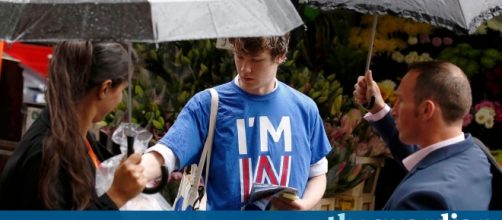All political parties are facing immense pressure to recruit younger members. It is encouraging to see a higher youth turnout at the last general election, but a second EU referendum is not the anecdote to youth apathy in this country. There are many other solutions to attract greater democratic participation among younger people instead of providing them with 'neverendums' on an issue dear to their hearts.
'The youth of today need to be more engaged in politics.'
Firstly, schools can help increase awareness of local politics. The British education system fails to adequately inform students about the differences between the major political parties and provide them with information on how to join one.
They could also do more to allow local political leaders to speak to them at schools about what they do in their constituencies. Most teachers are anti-Conservative, and there have been instances in the past where they have sneered at young people joining the Conservative Party. Schools should stamp out this behaviour immediately.
Local parties must grasp how to communicate with people on social media. They can make a greater effort to invest in sponsored ads on Facebook and Twitter to target the types of members they intend to recruit. Local parties' accounts are an innovative method of communicating with their target audiences about their activities.
Local youth parliaments are an excellent platform to provide students with a step into civil society.
Because of their neutrality, they can organise debates between the youth leaders of the main political parties and provide them with literature after the event on how to join a party. To be fair to schools, most of them are willing to promote these types of events.
The youth of today need to be more engaged in politics than ever before.
Take the issue of tuition fees. It is no secret any government can no longer afford to subsidise countless numbers of people studying towards degrees. The issue of student debt is now rearing its ugly head again. If more young people were involved in politics, they could shape policies like this to address the needs of students whilst tackling the debate on how to maintain university numbers in the face of rising fees.
Many of them feel fees need to be reduced and that this can be achieved by scrapping useless degrees that are not worth the same as vital ones, like maths or science. Yet the leaders of all parties have ignored these voices because they do not vote in droves.
It is great to see local parties taking the initiative in recruiting younger members, but Ben Howlett is wrong to suggest a second EU referendum is the answer.

